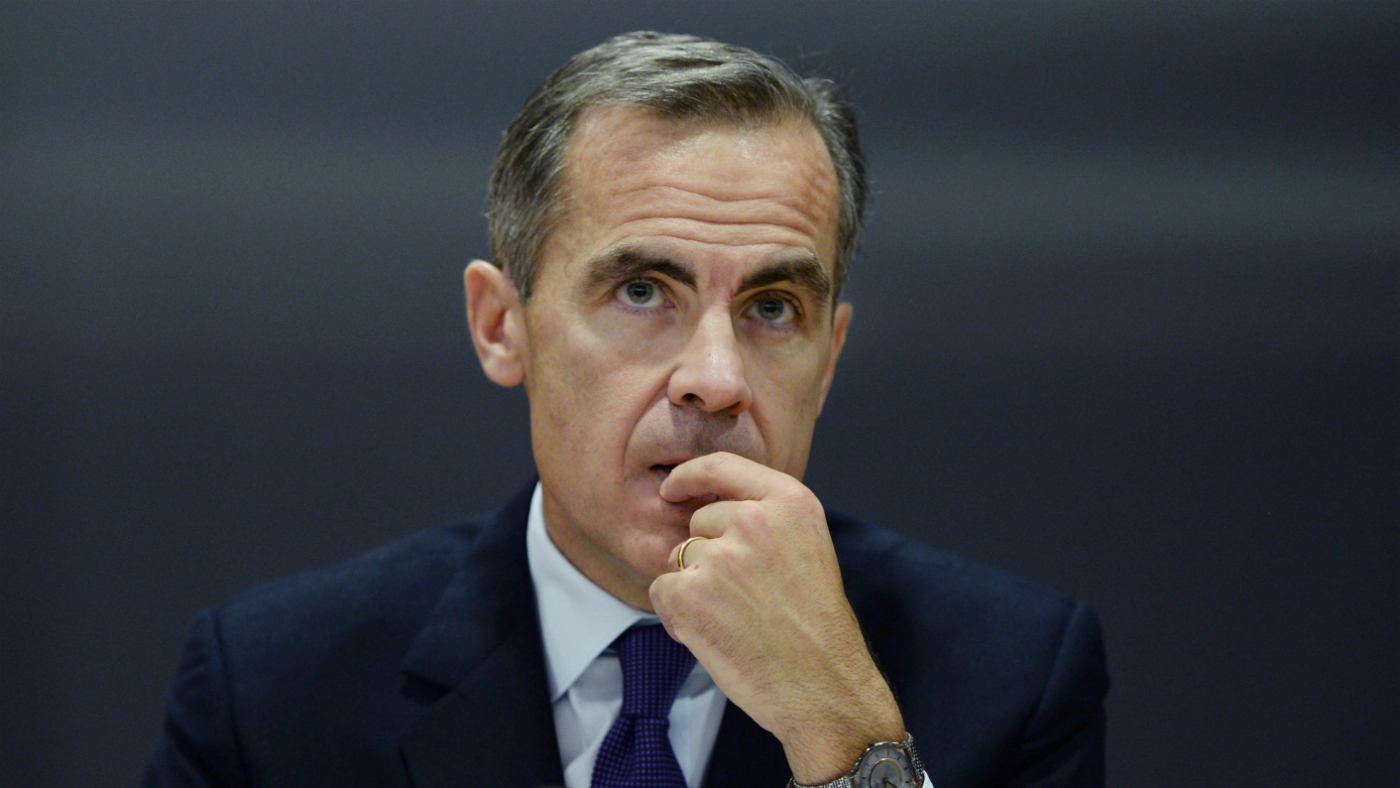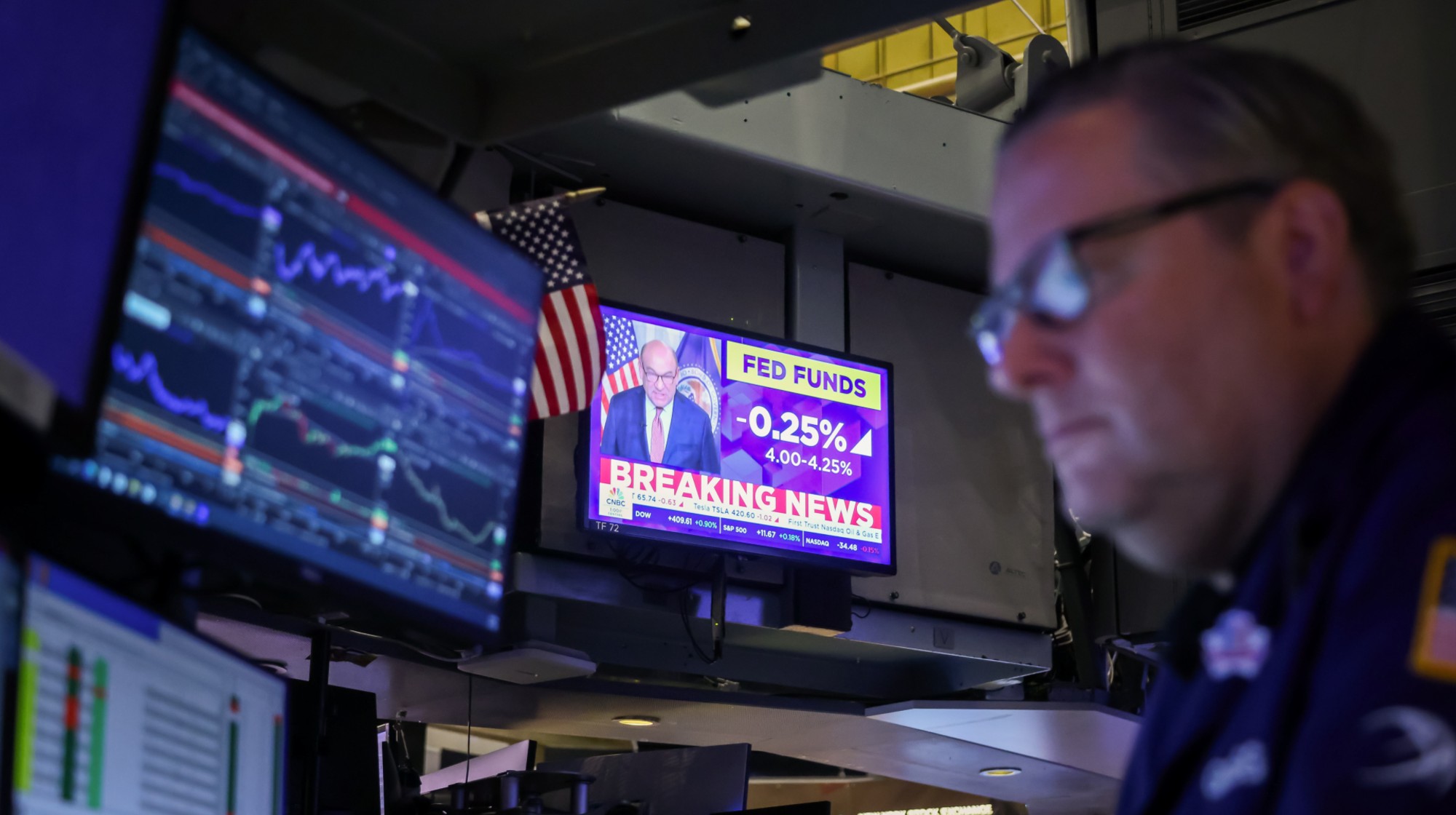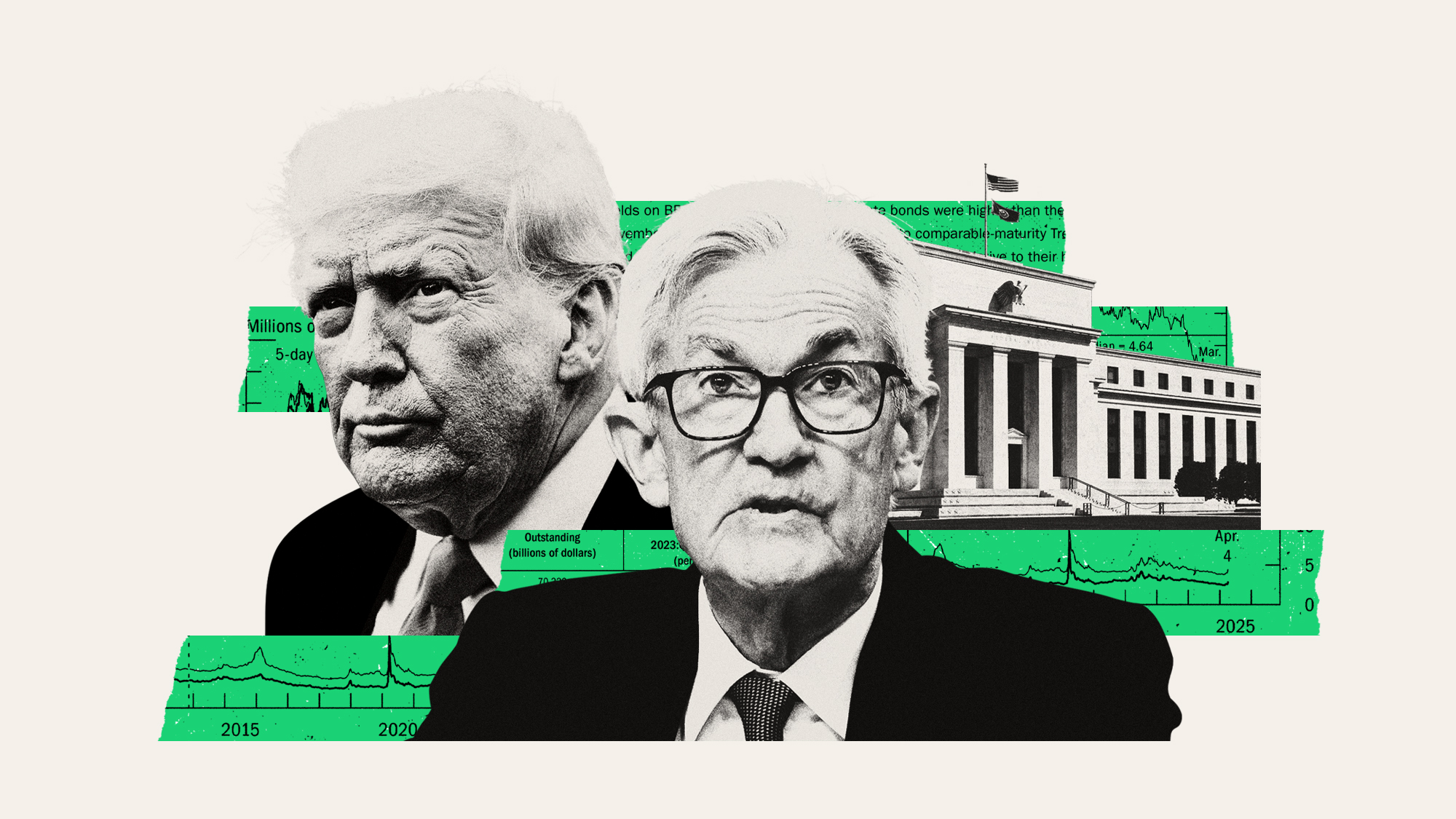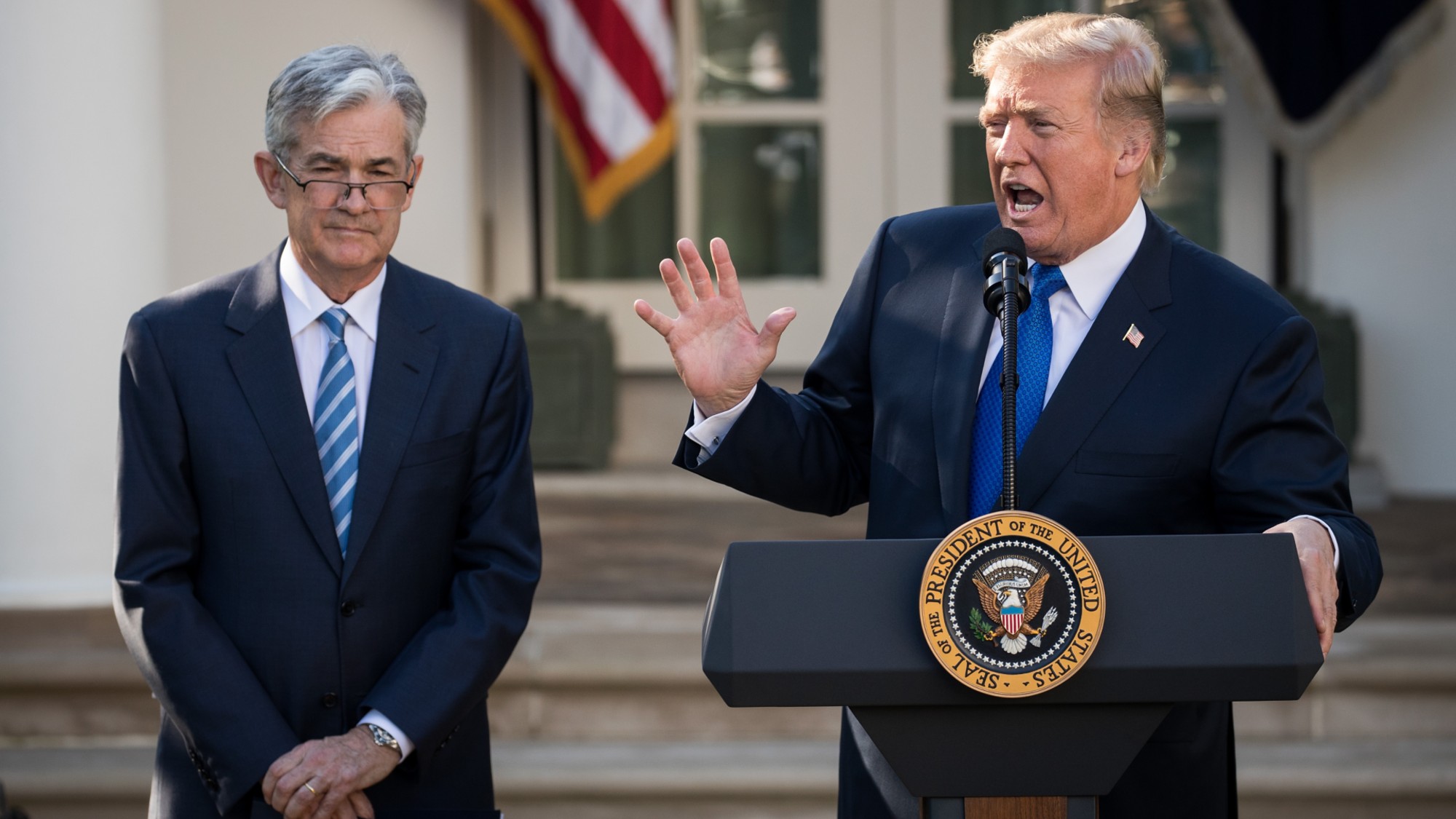Pound plunges after Bank of England's dovish rates signal
Central bank revises its growth forecast for UK economy

A free daily email with the biggest news stories of the day – and the best features from TheWeek.com
You are now subscribed
Your newsletter sign-up was successful
Interest rates reaction: five things we learned
6 August
A new era in Bank of England policy making began today, with the first-ever 'Super Thursday' data deluge that saw the interest rate decision, the minutes behind it and the latest economic forecasts all published at the same time.
Some warned the new approach would result in information overload and perhaps even spur volatility in the markets, while BoE Governor Mark Carney has said it marks a move to greater transparency and an end to the 'drip-feed' approach that he feels is a greater risk to market stability.
The Week
Escape your echo chamber. Get the facts behind the news, plus analysis from multiple perspectives.

Sign up for The Week's Free Newsletters
From our morning news briefing to a weekly Good News Newsletter, get the best of The Week delivered directly to your inbox.
From our morning news briefing to a weekly Good News Newsletter, get the best of The Week delivered directly to your inbox.
For most of us, however, it has simply given us more of an indication as to when rates are likely to rise, which has implications for rates charged, for example, on mortgages for homeowners. So what did we learn today?
1. Vote was still strongly against a rise
There was never going to be a rise today. Carney himself has said rates are unlikely to increase until the turn of the year at the earliest and any economist will tell you even the most optimistic analysis doesn't yet make the case. But we were expecting unanimity among the nine-member Monetary Policy Committee against a hike to end. The key question was: how many dissenting voices would there be? "Analysts believe that we could see two of the Bank's most hawkish rate setters... to once again start calling for rate hikes," said the Daily Telegraph this morning.
In the event, The Independent reports, just one member voted to increase rates, noted rates hawk Ian McCafferty, with even Martin Weale, historically one of the most hawkish of the nine-member panel, deciding to hold in favour of no increase. This means we have the first split on the panel in some time, but we're a long way from seeing a significant shift.
A free daily email with the biggest news stories of the day – and the best features from TheWeek.com
2. Inflation weak in near term
Interest rates are used as a policy lever to control inflation, which has been flatlining in the UK. The lower the inflation forecast the less in theory a rate hike is needed - and the Telegraph notes that the inflation report published today shows a dip in the near-term projection for price rises. It did, though, suggest that the "snap back" will be "quite marked" and the longer-term forecast remained largely largely unchanged.
3. Domestic demand improving
But commodity prices and currencies aren't the only factors influencing prices. A surge in domestic demand could also, if unchecked, spur a rapid rise in prices. This will bring focus on the wage growth figures, which the report noted are running substantially ahead of expectations. Crucially, however, productivity has improved, which means, says the Telegraph, that "wage rises will not lead to a surge in inflation".
4. Dovish language
As with the recent decision by the Federal Reserve in America, observers will pore over the statement, minutes and Carney's press conference to look for signs of a shift in language that suggests a change in momentum. In the US, much ink was spilled over the comment by the Fed that the risks to the economy were "nearly balanced", which many took to mean the arguments for a rise are set to win out.
But in the UK, the mood music suggests that a rates rise is not imminent. The Financial Times notes that although the governor hinted that things may change at the turn of the year, he said the committee could not "pre-commit to any future rate increase". He added, though, that speculation about a rate rise heralded an improving recovery. "What we do see... is an economy [in which] slack is being used up, we’re starting to see wages increase, we’re starting to see a pick up in unit labour costs."
5. Markets pricing in early 2016 rise
When all is said and done, watch the markets. In the aftermath of the announcement sterling and gilt yields have dipped sharply as the market digests the consensus view that we're a little way from a rate rise yet.
Don't get too excited about your mortgage rates, though. Most still seem to the think the longer-term stability and improving recovery will prompt an increase in the first quarter of 2016 - and, says the Independent, the Bank warned it was possible the mortgage rates offered by banks could rise anyway in the near future because bank "funding costs have crept up since May".
Interest rates: what to expect from 'Super Thursday'
5 August
Tomorrow's interest rates announcement will be more keenly watched than many in recent times, as the Bank of England for the first time publishes a swathe of key economic information on the same day.
On what has been dubbed 'Super Thursday', the UK's central bank will publish as usual the decision of its rate-setting Monetary Policy Committee alongside the minutes revealing the discussions of the nine-member panel – usually published weeks after the announcement itself – and its quarterly economic forecasts. The Guardian says it will be a "red-letter day for Bank-watchers".
But given governor Mark Carney has already publicly stated the inflexion point for rates is unlikely to arrive until the end of the year, what are we expecting tomorrow? According to the Guardian, the trio of announcements will warn "Britain's mortgage borrowers to brace themselves for higher interest rates" as "two, perhaps three" rate-setters vote for the first rise in six years. Ross Walker, chief UK economist at RBS, said the bank will "prepare the ground for any move" through a "carefully managed signalling process via the inflation report forecasts".
As for the effect on markets, Philip Aldrick of The Times, says that the clustering of announcements could create "information overload" that will result in volatility. "The rate decision is is a forgone conclusion, so traders will skip straight to the vote" with a more hawkish 6-3 split likely to "kick up the pound" (a continuing worry for those who agonise over the UK's trade deficit).
Traders will then turn to the inflation report, which should show reduced price rises as a result of falling commodities. However, if the forecast is largely unchanged "the Bank would be signalling that domestic price pressures are building… and sterling and gilt yields would push ahead again". He speculates that markets are "in for a bumpy ride".
Speaking to What Investment, Christine Johnson, head of fixed income at Old Mutual Global Investors, says that whatever happens on Thursday rates may yet stay lower for longer than people expect. Unemployment, the pound and productivity will all be on the rise while inflation expectations and mortgage growth remain on target. She counsels that to "be consistent now, the inflation report should set the scene for a recovery in inflation and a rate rise in early 2016".
[[{"type":"media","view_mode":"content_original","fid":"83653","attributes":{"class":"media-image"}}]]
Interest rates: Fed inches closer to hike, but will UK follow?
30 July
A meeting of its central bank's rate-setting committee has fuelled speculation US interest rates will rise for the first time in nine years.
As expected, the Federal Open Market Committee did not vote to raise rates yesterday, but its statement was keenly analysed for any hints of an increase at the next meeting in September. In the event there was something for everybody, but hawks in particular found plenty to crow about.
Federal Reserve chairwoman Janet Yellen said at a Senate hearing this month there were dangers of holding off on an increase for too long, in the strongest indication yet that rates will be shifted from their low of 0.25 per cent at one of the three remaining meetings this year.
There was good reason for those on both sides of the debate in the UK to take a keen interest in the Fed's statement, too. Bank of England governor Mark Carney has also hinted rates could move from their six-year record low as early as the end of this year – and some suggest a move across the pond could persuade UK rate-setters to follow suit.
The New York Times is among those saying the chances of a September increase have increased after the meeting, pointing to a shift in tone such as a comment that risks to the economic outlook are now "nearly balanced".
Investors apparently agreed, according to the Financial Times, which reports that US stocks and the dollar spiked after the statement was released.
On the other hand the Daily Telegraph points to remarks that the Fed must be "reasonably confident" inflation would return to its two per cent target – it is currently languishing at 0.2 per cent - before it makes a move on rates, as indicating an increase may yet be a few months away.
What does this mean for the UK? Possibly very little, says Bloomberg, which quashes the notion the two central banks are likely to act in concert. Since the Bank of England was made independent in 1997 it has raised interest rates over four periods, it says, "and there is little correlation with the Fed".
Earlier this week the Bank's deputy governor for financial stability, Sir Jon Cunliffe, told The Guardian he was concerned over "how the market will adjust" as and when the US hikes its rates, indicating he at least is not considering voting to follow the Fed's lead if it moves sooner.
Interest rates: pressure for rise as economy accelerates
28 July
Pressure is continuing to mount on the Bank of England's interest rate-setting committee to signal a move towards a first rise in six years, as official figures showed UK economic growth accelerating in the second quarter.
Analysts had called the numbers virtually spot on. The economy grew at 0.7 per cent in the second quarter, up from 0.4 per cent over the opening three months of the yea, while on an annualised basis it eased slightly from 2.9 per cent to 2.6 per cent. This compares favourably to other major developed economies and puts the UK on its third-longest longest positive run since 1955, according to the Financial Times.
The figures will add weight to the arguments of rates hawks, who believe the period of ultra-loose monetary policy should come to an end. They fear growing wages will otherwise drive runaway inflation and point to risks of investors being forced to get creative in the hunt for returns. The FT says the pound has gained as traders bet on a rate rise in the near future.
Anticipation that a rate rise could be around the corner, fuelled by hints from Bank of England governor Mark Carney, have spurred a surge in the number of people remortgaging away from variable rates in order to protect themselves against future shocks and capitalise on currently rock-bottom fixed rates.
Others argue the economy is weaker than the data would make it appear. The statistics highlight a number of key parts of the economy that continue to underperform, such as manufacturing which The Guardian says was down by 0.3 per cent in a sign that the UK is still struggling with a productivity crisis. The Guardian also reports today on a survey from the Confederation of British Industry that reveals sentiment among producers is at its lowest level for four years.
Elsewhere Sky News conducted a poll which found that despite the improving figures many Brits feel worse off than they did before the financial crisis. More than four in 10 people say they feel their personal finances have deteriorated, while only 26 per cent believe things have got better.
Interest rates: prepare for the end of cheap mortgages
27 July
Homeowners are being told to prepare for the end of ultra-cheap mortgages as pressure ramps up on the Bank of England's rate-setting committee to end a prolonged period of record low interest rates.
The Daily Telegraph reports that some of the cheapest fixed rate deals could be pulled by banks as early as this week, in the wake of a surge in the number of people remortgaging in order to move away from variable loans. Figures from the banking sector trade body published last week show a rise of around a fifth in the number of homeowners refinancing to almost 24,000 in June. With a policy shift apparently looming, this trend is set to continue in the coming months.
The paper says Barclays could increase by 0.2 per cent the rate on its popular 2.39 per cent five-year fix in a move that would add £240 to the annual cost on a £200,000 loan. The bank could also increase by a bigger margin its market-leading ten-year rate, while Santander is likely to hike rates across its fixed range by 0.1 per cent. Elsewhere Yorkshire Building Society is thought to be considering increases.
According to the Daily Mail, average mortgage rates are currently at their lowest since Bank of England records began in 1995. The median two-year fixed rate has plunged as low as 1.83 per cent, compared with 3.98 per cent in 2009. The average five-year rate is now 2.81 per cent, down from 3.01 per cent a year ago.
The UK interest rate has been on hold since March 2009 at a record low 0.5 per cent, but as the economy improves and concern grows over wage growth that could propel inflation there is widespread speculation this could change. Both The Guardian and the Daily Mail report that official growth figures out tomorrow will increase pressure for a rise before the end of the year.
Opinion remains split on the merits of such a move. The Observer's business leader urges rate-setters to hold fire as it cautions against a move that could further boost the pound and exacerbate the UK's trade imbalance, while the Telegraph reports ratings agency Moody's has dismissed concern over the effects on 'toughened' households of a rate rise.
-
 Local elections 2026: where are they and who is expected to win?
Local elections 2026: where are they and who is expected to win?The Explainer Labour is braced for heavy losses and U-turn on postponing some council elections hasn’t helped the party’s prospects
-
 6 of the world’s most accessible destinations
6 of the world’s most accessible destinationsThe Week Recommends Experience all of Berlin, Singapore and Sydney
-
 How the FCC’s ‘equal time’ rule works
How the FCC’s ‘equal time’ rule worksIn the Spotlight The law is at the heart of the Colbert-CBS conflict
-
 Powell: The Fed’s last hope?
Powell: The Fed’s last hope?Feature Federal Reserve Chairman Jerome Powell fights back against President Trump's claims
-
 The end for central bank independence?
The end for central bank independence?The Explainer Trump’s war on the US Federal Reserve comes at a moment of global weakening in central bank authority
-
 Who will be the next Fed chair?
Who will be the next Fed chair?Today's Big Question Kevin Hassett appears to be Trump’s pick
-
 Should Labour break manifesto pledge and raise taxes?
Should Labour break manifesto pledge and raise taxes?Today's Big Question There are ‘powerful’ fiscal arguments for an income tax rise but it could mean ‘game over’ for the government
-
 What are stablecoins, and why is the government so interested in them?
What are stablecoins, and why is the government so interested in them?The Explainer With the government backing calls for the regulation of certain cryptocurrencies, are stablecoins the future?
-
 Fed cuts interest rates a quarter point
Fed cuts interest rates a quarter pointSpeed Read ‘The cut suggests a broader shift toward concern about cracks forming in the job market’
-
 Trump's threats to fire Jerome Powell are unsettling the markets
Trump's threats to fire Jerome Powell are unsettling the marketsTalking Points Expect a 'period of volatility' if he follows through
-
 How will Wall Street react to the Trump-Powell showdown?
How will Wall Street react to the Trump-Powell showdown?Today's Big Question 'Market turmoil' seems likely